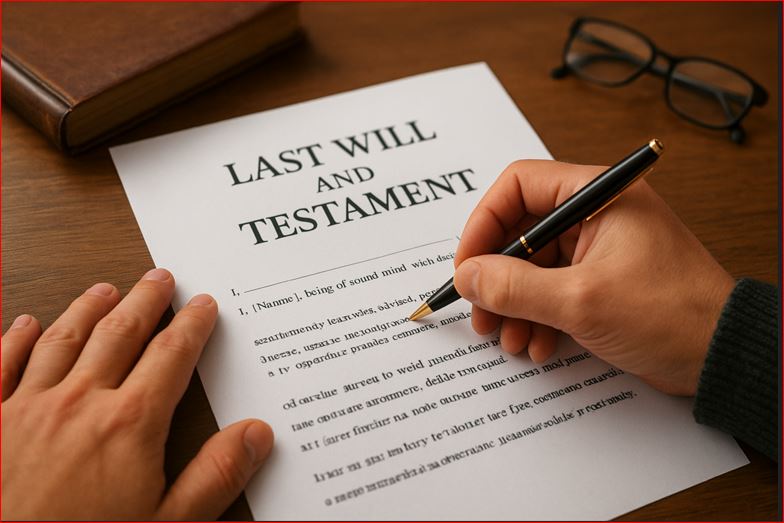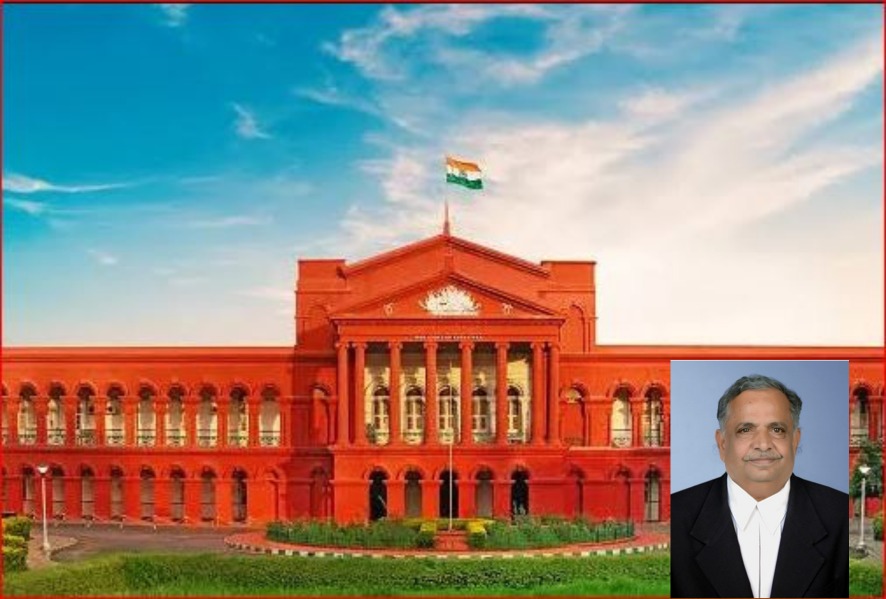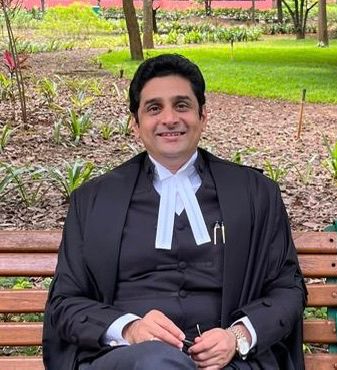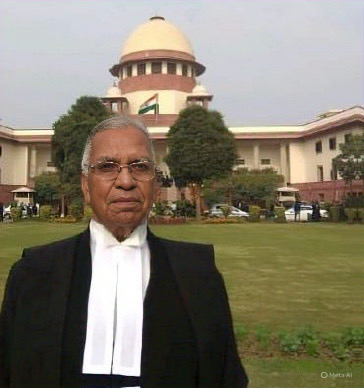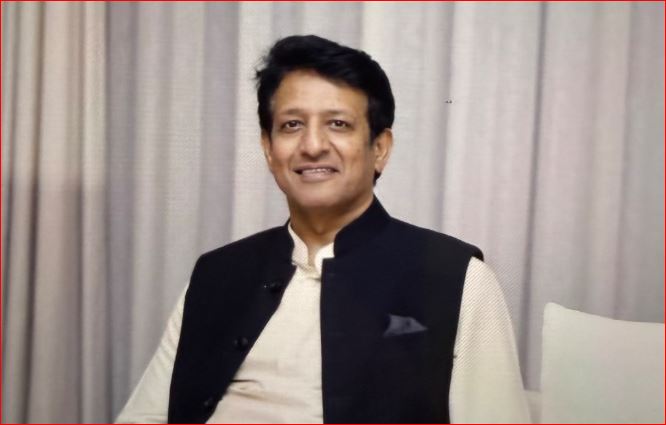Preemptive suit by testator for avoiding disputes regarding execution and proof of Will.
- 21-September-2025 21:55
1. I have been a lawyer practicing in trial courts exclusively, for the last 54 years. I have conducted large number of cases relating to the proof of wills. The usual defense in order to defeat a will, are as under:
a. That the will is not duly attested and executed as required by section 63 of the Indian Succession Act b. The testator is not in a sound disposing state of mind.
c. That the execution of the will is surrounded by suspicious circumstances.
2. I was thinking of finding a solution as to how a testator can avoid a situation of contest to his will, after his life time. My studies did not afford any solution for this problem, by reference to precedents.
3. Section 63 of the India Succession Act requires that the will has to be executed in the presence of two attestors. What is attestation of a will, is also defined in this section as follows:
i. The testator shall sign or shall affix his mark to the Will, or it shall be signed by some other person in his presence and by his direction.
ii. The signature or mark of the testator, or the signature of the person signing for him, shall be so placed that it shall appear that it was intended thereby to give effect to the writing as a Will.
iii. The Will shall be attested by two or more witnesses, each of whom has seen the testator sign or affix his mark to the Will or has seen some other person sign the Will, in the presence and by the direction of the testator, or has received from the testator a personal acknowledgement of his signature or mark, or the signature of such other person; and each of the witnesses shall sign the Will in the presence of the testator, but it shall not be necessary that more than one witness be present at the same time, and no particular form of attestation shall be necessary.
4. It is obvious that when a will is questioned in a court of law the executent is not alive to speak about its genuineness or validity. Further even if a will is admitted by the opposite party in contested proceedings, the same has to be proved in accordance with Section 63 of Evidence Act.
5. In my experience I have found, in many cases, proof of proper execution of a genuine will, as required by law, would not be possible in the following circumstances.
a. All the attestors and the scribe of the will may not even be identifiable for deposing before the court.
b. The attestors and the scribe could be won over by the opposite side.
c. In cases where the attestors are dead for application of section 68 Bharathiya Sakshya Adhiniyam 2023, any person who can identify the signature of one of the attestors and the executent, may not be traced.
d. Unrighteous demands are made by unscrupulous attestors for supporting the proof of will, depending on the value of the property.
e. The original of the will might have been lost and the courts often do not permit any secondary evidence in this regard for identifying the signatures, more so when the will in question is an unregistered document.
f. In some cases, I say with sense of regret the folly of the trial lawyers, in not correctly understanding the legal requirements of proof of will, while adducing evidence, in proof of the will.
6. I can say with confidence that lawyers who practice only at the High Court and Supreme Court level and the judges of these courts, including the legislators, have completely failed to understand and address to this problem.
7. In all such cases even an honest registered will, let alone an unregistered will, fail for not complying with the legal requirements of proof of wills. Thus the honest desire of the testator expressed though a genuine will, falls to the ground.
8. Even in cases where probate or letters of administration is applied for, all the aforesaid obstacles would come in the way of giving effect to an honest will.
9. Therefore I have thought of a solution which could be adopted by the testator, during his life time, for avoiding any frustration of the intentions expressed by him through his will. This we can probably overcome, by the testator, by filing a suit before a civil court, during his life time, by recourse to Section 69 Bharatiya Sakshya Abhiniyam 2023, which reads as follows :
“The admission of a party to an attested document of its execution by himself shall be sufficient proof of its execution as against him, though it be a document required by law to be attested.”
A model plaint that could be filed for this purpose, is annexure A, herein. Further even in cases where proceedings are pending in court, the testator during his life time could make an application in this behalf, and a model form of this application is annexure B, herein. (See the attachment)
10. There is no need for giving details of properties, which are the subject matter of the bequest, or producing a copy of the will. Therefore the secrecy of the will could be maintained.
11. As a declaration is sought only in respect of the admission of the execution of the will and as no declaration is sought in respect of the properties covered under the will, a notional valuation could be made, and court fee could be paid accordingly. Even a suit of a like nature could be filed before the Civil Judge, Junior Division, also by adopting a lesser notional valuation, under section 24 of the Karnataka Court Fees and Suits Valuation Act. As the plaintiff is not able to seek any other further relief and as there are no defendants in the suit, a bare suit for declaration without any consequential relief would be maintainable under section 34 of the Karnataka Court Fees and Suits Valuation Act. In such suits there is no need to issue summons to the defendant, as there is no defendant and further there is no need for any paper publication also as there is no other person interested in the proceedings except the plaintiff himself.
12. The cause of action for a suit of this nature, arises only on the date of declaration of admission of execution of the will. For this reason such declaration could be made any where in India and a suit of this nature could be filed in any civil court throughout the country, irrespective of the place of residence of the plaintiff, place of execution of the will and the situation of the properties bequeathed. Please note that the suggestions made in this article are no substitute, either for taking proceedings for grant of probate or letters of administration.
13. By adopting this inexpensive procedure as stated above, the following factors would automatically stand established beyond doubt.
i. As the plaintiff enters witness box in open court and admits the execution of the will, the will gets proved beyond doubt.
ii. As the plaintiff admits the execution of the will by himself in court, there would be no need to prove due attestation of the will.
iii The sound disposing state of mind of the plaintiff is also established, by the allegations made in the plaint and also by his examination in court.
14. We are aware that one of the prime reasons for clogging the justice delivery system, by reason of docket explosion, right from the lowest to the highest echelons of the judiciary, both relating to poor and ultra rich litigants, relates to the validity of the wills. A legislative intervention in this regard is long overdue and requires immediate attention.
15. The aforesaid solution would avoid civil litigation substantially and would reduce the time of the court in deciding disputes regarding the validity of the wills. In many cases even a lawyer’s folly, could defeat the will, and this can also be avoided.
16. Sri. S.Rama Rao is my father. He was only a non graduate pleader. His pleadings were always terse and to the point. He had an excellent knowledge of the fundamentals of law and his english was without blemish. He was my friend, guru, mentor and everything in my life and therefore I have penned this article in his memory and have titled this article as Rama Rao’s solution.
S.R.Suryanarayana Rao
Advocate
Chickballapur
